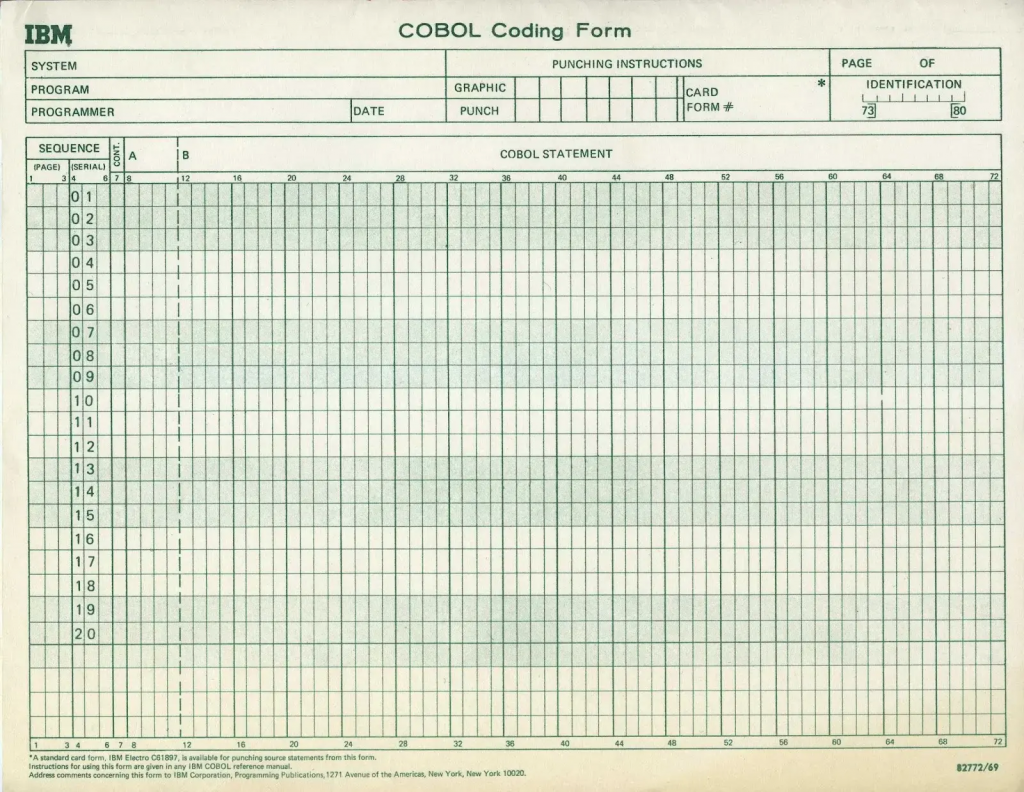Brother
Professional
- Messages
- 2,590
- Reaction score
- 533
- Points
- 113
Most of the world's business and financial systems run on COBOL, and only a small community of programmers knows about it.
The world processes $ 3 trillion worth of financial transactions every day using the 64-year-old COBOL programming language, which almost no one learns anymore. Despite the fact that most educational institutions stopped teaching it decades ago, COBOL remains one of the leading programming languages for mainframes, widely used in the banking sector, automotive industry, insurance, public sector, healthcare and finance.

According to the International Journal of Advanced Research in Science, Communications and Technology, 43% of all banking systems still use COBOL, which processes these $ 3 trillion-a-day transactions, including 95% of all US ATM transactions and 80% of all credit card transactions.
The main problem is that very few people are interested in learning COBOL right now. Programming in it is considered cumbersome and inefficient, and the code reads like an English lesson. Moreover, the encoding format requires care and is not flexible, and compilation takes much longer than the competition. Because of this, specialists who can work with and support COBOL are becoming increasingly rare.
IBM offers an AI solution to this problem. The company has developed an AI coding assistant (watsonx) that helps translate old COBOL code into more modern languages, thereby saving programmers many hours of reprogramming. This process can be simplified to converting an essay in English to Esperanto using ChatGPT. It allows programmers to take a piece of COBOL code and convert it to Java using watsonx. However, in practice, everything is not so simple.
Skyla Loomis, vice president of IBM Z Software at IBM, points out: "The AI assistant can deliver up to 80-90 percent of the required output, but additional adjustments are required. This is a means of improving work efficiency, and not a complete replacement for the developer's work."
According to a Gartner report for 2023, by 2028, a combination of human and AI assistants can reduce the time spent on coding tasks by 30%, and 80% of programmers will use AI in one form or another.
Now, as Gartner analyst Arun Chandrakekara puts it, we'll just have to "wait and see."
The world processes $ 3 trillion worth of financial transactions every day using the 64-year-old COBOL programming language, which almost no one learns anymore. Despite the fact that most educational institutions stopped teaching it decades ago, COBOL remains one of the leading programming languages for mainframes, widely used in the banking sector, automotive industry, insurance, public sector, healthcare and finance.

According to the International Journal of Advanced Research in Science, Communications and Technology, 43% of all banking systems still use COBOL, which processes these $ 3 trillion-a-day transactions, including 95% of all US ATM transactions and 80% of all credit card transactions.
The main problem is that very few people are interested in learning COBOL right now. Programming in it is considered cumbersome and inefficient, and the code reads like an English lesson. Moreover, the encoding format requires care and is not flexible, and compilation takes much longer than the competition. Because of this, specialists who can work with and support COBOL are becoming increasingly rare.
IBM offers an AI solution to this problem. The company has developed an AI coding assistant (watsonx) that helps translate old COBOL code into more modern languages, thereby saving programmers many hours of reprogramming. This process can be simplified to converting an essay in English to Esperanto using ChatGPT. It allows programmers to take a piece of COBOL code and convert it to Java using watsonx. However, in practice, everything is not so simple.
Skyla Loomis, vice president of IBM Z Software at IBM, points out: "The AI assistant can deliver up to 80-90 percent of the required output, but additional adjustments are required. This is a means of improving work efficiency, and not a complete replacement for the developer's work."
According to a Gartner report for 2023, by 2028, a combination of human and AI assistants can reduce the time spent on coding tasks by 30%, and 80% of programmers will use AI in one form or another.
Now, as Gartner analyst Arun Chandrakekara puts it, we'll just have to "wait and see."

